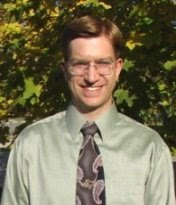Open Content and the Open Domain
So here I am thinking about Open Content and Educational issues not because of my course work, not because of reading some modern academic’s writings, but for the strangest of reasons. I found myself reading Cosmos by Carl Sagan (yes, the famed late Physicist better known by some for his later book Contact which was made into a movie by Bob Zemeckis). He weaves an ongoing theme in Cosmos that if it weren’t for the stifling of thought years ago in many civilizations, we humans could well have progressed by now to have created technologies allowing us to travel to the stars of other galaxies.
This argument climaxes with a quasi-case study involving the Ionians and the Pythagoreans. The Ionians created the great library of Alexandria, a center of modern thought in its day. They focused on the practical, what could be examined through the senses, what we would consider today to be the beginnings of true scientific inquiry. Then along came Pythagoras (yes, the self-same mathematician known for his trigonometric theorem). He taught that the world could be understood not through experimentation and observation, but through thought and thought alone. By thinking through a problem, a solution would present itself. This solution needn’t require experimentation to support its veracity. So believed the followers of Pythagoras. Though to us this way of understanding the world may seem naïve perhaps even unbelievable, many were drawn in by the persuasiveness of Pythagoras. So many, in fact, that the Ionians soon became a memory. Their writings, many returned to the dust from which they sprang. Human advancement, estimates Sagan, was delayed about one thousand years. And this is but one example of the stifling of thought throughout history.
So now, I apply this to our day. I fully believe we, as a human race, have reached another moment in time where the stifling of thought can cause a major turn of events for the future. With the dawn of the digital age, we now have an opportunity to embrace new understandings and policies regarding Intellectual Property protection, or we can hover under an out-dated copyright seal. Great entities, powerful, persuasive, and prodded not in the pursuit of progress, but in the push for profits, lobby to protect their precious property. Original constitutional copyright law was meant to help human progress. Incentives were only a mean to achieve this end. Unfortunately many view copyright protection as a way to capitalize upon these incentives.
But there is a light, there is hope shining forth from this darkness. We call it Open Content. This is content that is protected not by copyright alone, which stamps its seal of “No Trespassing” upon all fixed content, but by other supplementary agreements which allow others to use the content. Permission does not need to be sought because it is already given.
Sadly, the public is largely unaware of such agreements. To them, there is only the Copyright Domain and the Public Domain. There is nothing in the middle. For this reason, I propose the Open Domain. This would be a clear area where content could reside and with which the public would become well acquainted. “All Rights Reserved,” well that’s obviously for the Copyright Domain. “Free for the world to use with no conditions,” that would be for the Public Domain. But anything in between, governed under a supplementary copyright agreement (Creative Commons, General Public Licenses, etc.), these would be placed in the Open Domain.
Of course, congress would need to enact some piece of legislation, call it the Digital Open Content Copyright Act (DOCCA), to create such a domain. Certain other loose ends of Intellectual Property would be fairly easily incorporated into this Act. But imagine the possibilities.
For example, several leading lawyers, such as Larry Lessig, in this movement are pushing for is a newer way of handling Orphan Works. These are content that might have copyright ownership but that are too difficult to track down who that owner is. Currently, (tying into education) if an instructor uses an Orphan Work, even after making a good faith effort of locating the owner, they do so risking copyright infringement. Many do so anyway, hoping they can claim Fair Use should a copyright holder make a claim. But the DOCCA could alleviate the difficulty. In fact, it could serve as a conduit for locating copyright holders. Just think, an instructor could find an Orphan Work, make a good faith effort to locate the copyright holder, and then use the work without worry. If a copyright holder comes forward, wonderful, then an agreement can be made as to the use of the content. If not, then human progress can move forward, because an instructor has been allowed to improve instruction even more by being unencumbered in the use of content.
And that’s what it’s all about, human progression and advancement. Here’s to hoping that we are not delayed another thousand years in reaching the stars.


